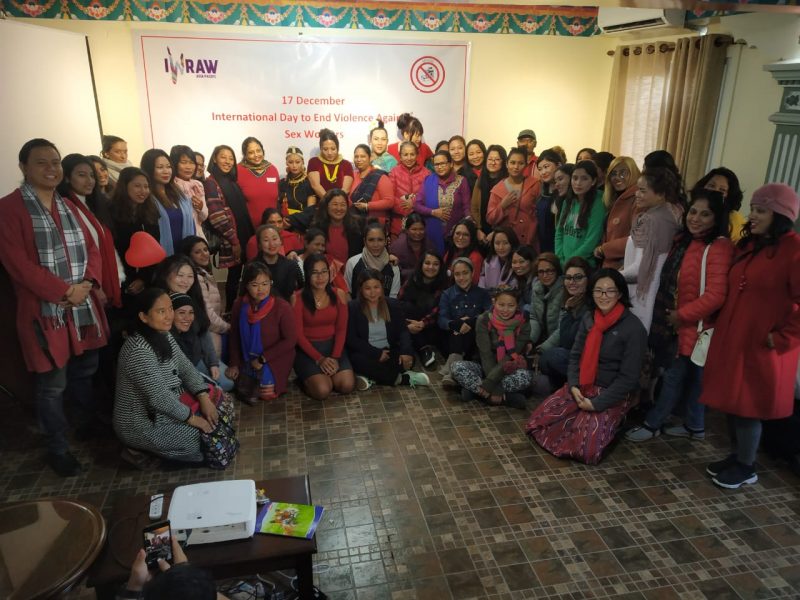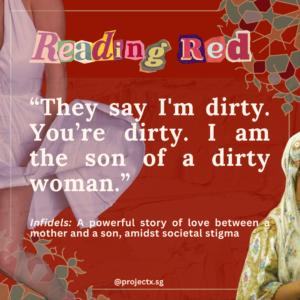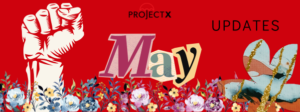It’s me, Sherry Sherqueshaa, a researcher and writer for Project X Singapore. I am also the Global Network of Sex Worker Projects (NSWP) Regional Representative for the Asia Pacific. Currently, I am advocating for access to justice and the positive media portrayal of sex workers. It is no surprise that many sex workers from neighbouring countries in Asia fly into Singapore to do sex work due to its high exchange rate. This, however, comes with a price to pay. One is how migrant sex workers often fall under the radar. They are at risk of abusive clients but are afraid to report it due to their nature of work. This fear increases after seeing how sex workers are portrayed when arrested. Women are made to sit by their bed with condoms and lubricants neatly arranged whilst being photographed. As a sex workers’ rights activist, I felt ashamed by how journalists write the story, most of it basically shaming them. This motivates me to advocate for their rights and shine a positive light on the industry. The laws in Singapore state that prostitution is legal and soliciting is illegal. Under the Women’s Charter, it is illegal to obtain a woman for the purpose of prostitution, manage/own a brothel, and using remote communication services operated or maintained for offering or facilitating the provision of sexual services are illegal. While there are regulated brothels for licensed sex workers and protection, unlicensed sex workers are often marginalized due to the nature of their work.
Project X received an email from the Asia Pacific Network of Sex Workers (APNSW) on the first week of September about the 2nd Regional Workshop on CEDAW to Advance Sex Workers Rights and request for the nomination. In 2018 on the first Regional Workshop on CEDAW, there were participants from Project X too. In my many years of experience of being a human rights defender, I read extensively on The Committee on Elimination of All Forms of Discrimination Against Women (CEDAW) and its principles. In 2017, I was given the priceless opportunity to travel to Geneva to attend the training by International Women’s Rights Action Watch Asia Pacific (IWRAW AP) and present the coalition report of NGOs in Singapore. This is when I had the first-hand experience of using the CEDAW principle to advocate for sex workers’ rights. It was a great experience to attend the workshop and present the report in Geneva for CEDAW. When I first learned of CEDAW reporting, I was clueless and skeptical about it because I have no prior experience and had not witnessed any effects from it. However, after witnessing for myself how the report was to be read and taken into consideration by the CEDAW community, my perspective was changed. Since then, I started to read and learn more about CEDAW and think about ways to include it in my advocacy work. The sex workers will be able to utilize CEDAW as an advocacy tool to protect and promote their personal rights. I was very excited to attend this training as I could build leadership skills for advocacy amongst sex workers on a national and international level. I was also informed that we will have participants from the 10 countries who work for sex workers’ rights. Finally, our organization, Project X, nominated Tania (a member of Project X) and I. What motivates me to attend the regional workshop on Rights of Sex Workers CEDAW is the exchange of best practices and understanding why each country uses the strategy. With all that I learned and understood, I can apply it to my work wherever possible.
APNSW had requested a task for all participants a couple of weeks ago before the training started. The reason behind the request was to understand the history and status of sex workers from different countries and the region. Me and my colleague Tania were off to Nepal to attend the Regional CEDAW workshop. The weather in Nepal was quite cold in December but on the first day of training, we were warmly welcomed by APNSW with 15 min warm-up Ice Breaker exercise. The objective of that Ice Breaker was to get to know others better and to emphasize our commonalities (that we were not alone in suffering from stigma, abuses). Attending the 4 days’ regional workshop has generated a lot of energy and passion in me. One highlight for me was when we reviewed and edited how the definition of the CEDAW articles could be more accurate by including sex workers. It was definitely refreshing to learn different strategies from other participants. The session about using art for advocacy was something that I really enjoyed doing/learning in Nepal. We drew “where we are now, where we want to be” ; another way of brainstorming and putting it into images. After the brainstorming session and draft sketch, we decided that the completed big banner that we used for art advocacy could be a great tool for displaying at events or conferences. Learning became more meaningful when it is with fellow sex workers from the region. The things that we can learn from one another are endless. I will certainly use them back in my community for future workshops.
The challenge of advocating for sex workers’ rights is balancing my expectations versus the constraints of reality. In my early years of doing advocacy, I thought it was as easy as talking about it on social media, interviews, and events. But later I have learned that not everything is as easy as it seems. Lack of capacity and security is one of the factors that hinder a great advocacy effort. All of us need to be working together towards the decriminalization of sex work as sex workers do not deserve to be executed for choosing to do sex work and reporting a crime. Hence, the regional workshop is definitely useful for sex workers’ rights organizations as it covered many tips and ideas.
My advice and message for other activists who would like to work with CEDAW are to have faith in the work you are doing. This includes the power of the report you submit. At the beginning it may seem like nothing may come from it, yes that is true but on the other perspective is that you have now represented yourself at a higher level which is international. Better things suffice when you take your advocacy to another level- from ground to Nation, Region, and Global.






